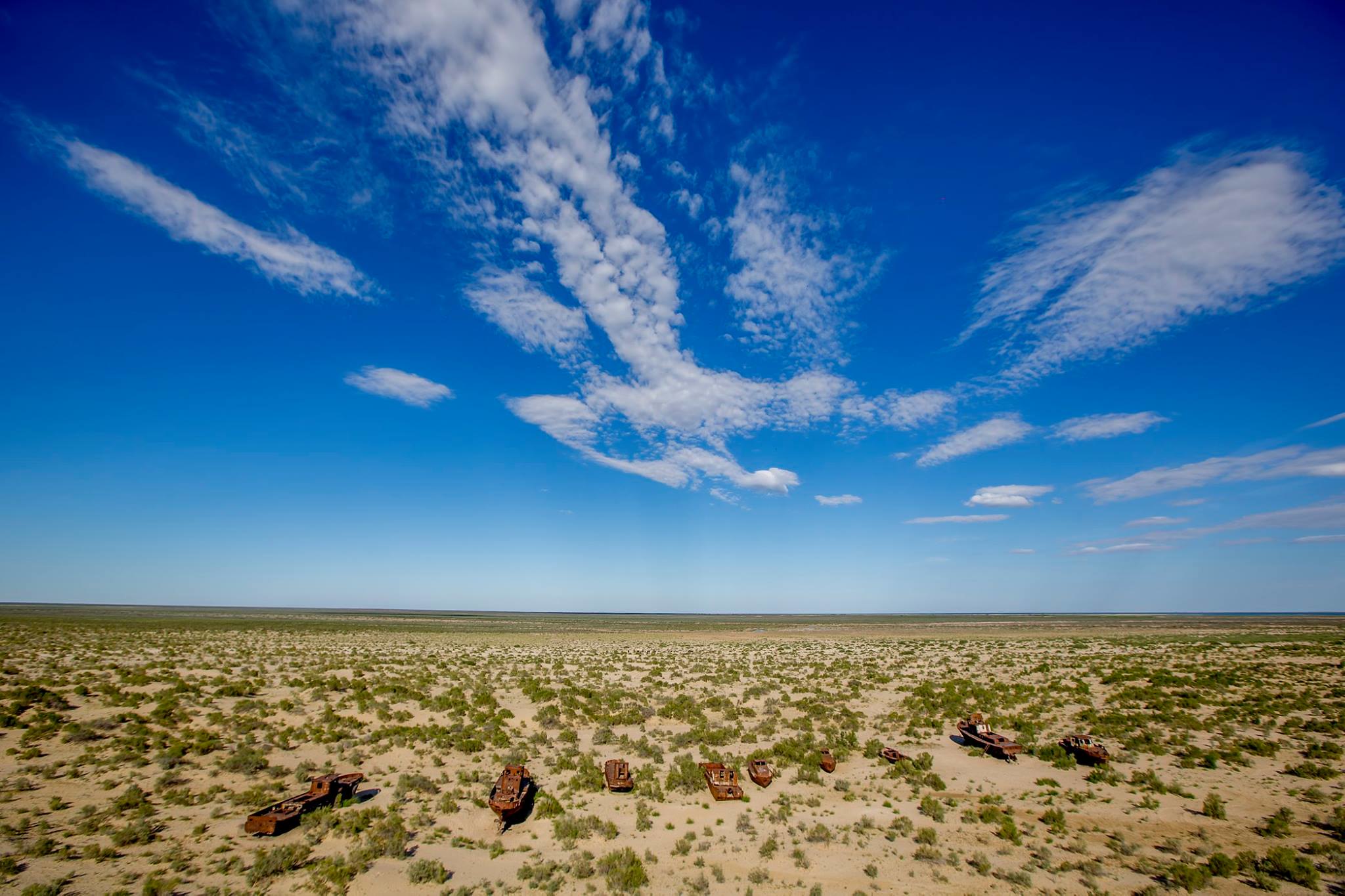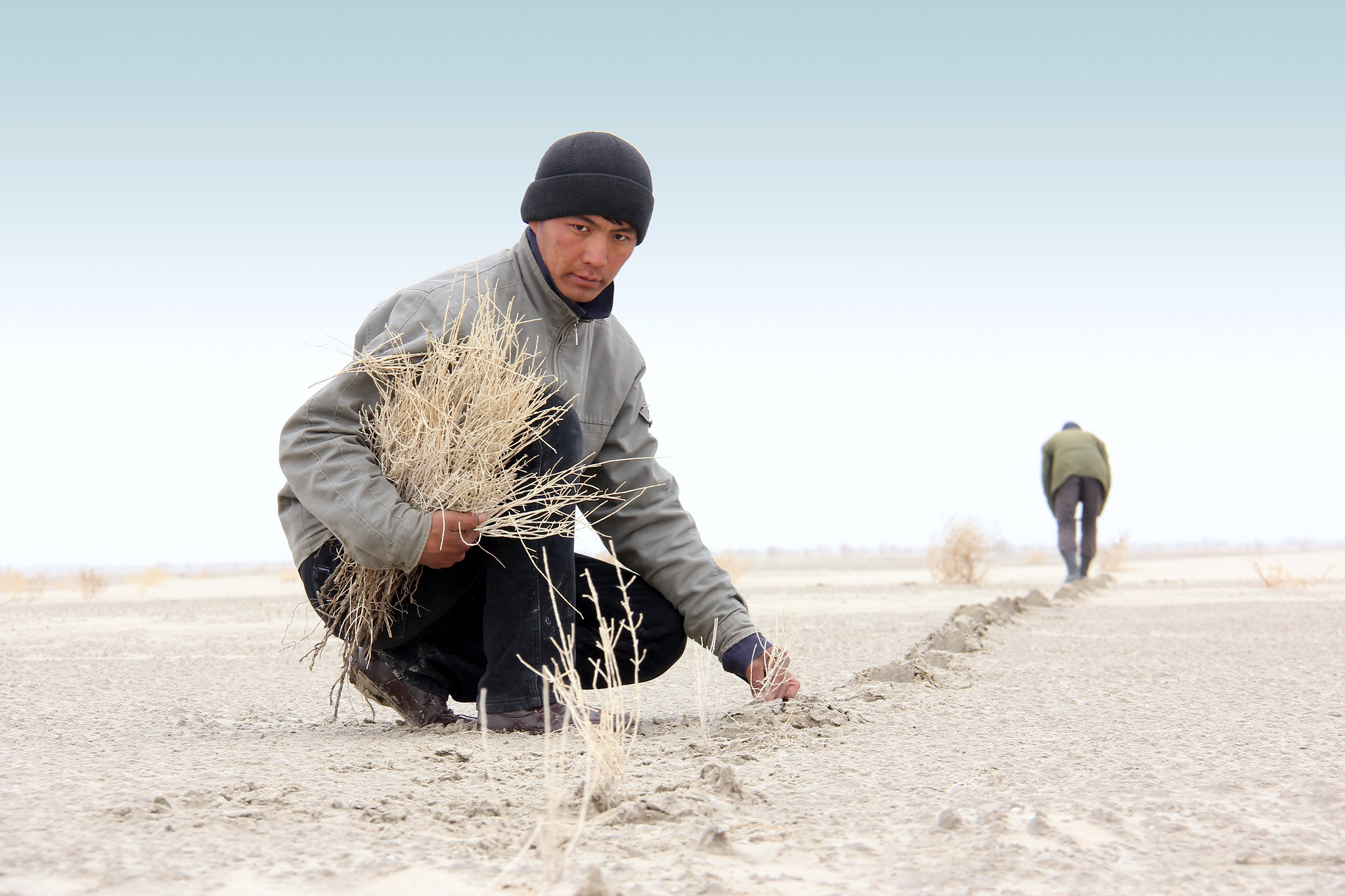An enthusiastic professional with a diverse journey from being an economist to becoming an environmentalist, Mihail Peleah is a Programme Specialist, Green Economy and Employment at the United Nations Development Programme (UNDP). He has been using his expertise to “connect the dots” between regional projects and initiatives, share and tailor knowledge, make cross-countries/cross-regions connections, take the context into account and adopt the best practices. His Hero Story is about understanding technology, investing in self-learning, creating efficient partnerships, and having a broad perspective over things that could lead to a greener and sustainable future.
DevelopmentAid: Why did you decide to go into the Green Economy sector and sustainability in general?
Mihail Peleah: “It was a journey. I started my career in development as an economist at the Ministry of Labour and Social Protection of Moldova and continued with the European Commission in Moldova in the Food Security Program where I was responsible for the financial and social protection domain. After that, I joined the UNDP in Moldova as a Programme Officer and later transferred to the UNDP Bratislava Regional Centre as a Human Development Programme and Research Officer, with a focus on vulnerable groups. The work in Bratislava massively tackled sustainable development in Europe and Central Asia where the communist legacy with a nominal human-centered development agenda was still in place.
Taking into account the specificities of one of the regions we cover – Central Asia, the environmental concerns are evident, particularly with the Aral Sea disaster. In a nutshell, it is about the water recession of this fourth largest lake in the world being caused primarily by the withdrawal of water for irrigation. By 1997, the Aral Sea had shrunk to 10% of its original size, and this region is now known as the Aralkum Desert, the world’s newest desert. This process certainly affected the livelihood of the people living in the area, like fishermen, and since this lake was salted, its shrinking and salt spread affected land fertility as well.

The questions I encountered along the way were: Are people indeed the basis of the sustainable development agenda? Do they have the agencies in place to pursue a life that they value or have reason to value?
Given all the factors, I gradually shifted into the sustainability area. My new activity included the coordination of trainings, workshops, and summer schools on sustainable human development, combining economic and social development with environmental sustainability, in collaboration with the Central European University. The workshops were interactive and brought together people with diverse backgrounds, such as economists, environmentalists, political analysts, statisticians, etc. By using statistics and projection-based simulations, we tested innovative ways of dialogues and policymaking for sustainable human development.
In 2014, I moved from Bratislava to Istanbul, and later, due to office restructuring, I was assigned to be the Programme Specialist, Green Economy and Employment at UNDP. That is what I am doing up to this day.”
DevelopmentAid: What were the challenges you faced at the beginning of your “green career”?
Mihail Peleah: “There were also opportunities beside challenges – partnerships, learning and a broad perspective over things.”
Partnerships: “When I worked in the conditional budget support program with the European Commission between 2002 – 2005, Moldova faced a debt crisis due to credits acquired on unfavourable conditions. The country was facing a default by 2003. I was responsible for US$10 million in assistance at that time, equipping me with a lot of leverage and a strong negotiation point within the national partnerships. Things changed with the UNDP employment – since there were less funds, I had to talk to, persuade and create coalitions with a larger spectrum of actors and partners. It was a radical change that enhanced my sustainability perspective.”
Learning: “I am dealing with narrow specialists in technology, Artificial Intelligence (AI), energy, agriculture and it is important for me to know how these elements can be combined to generate positive results. AI can be used to track human habits and violate human rights, but also to track crops and reduce drought effects. The need to understand the landscape of technological development and stakeholders made me invest in self-learning. Due to the knowledge gained, I have contributed to the 2022 Special Report on Human Security, chapter Digital technology’s threats to human security, during my Detail Assignment at the Human Development Report Office.
The European Training Foundation issued an interesting report which found that, in the case of Morocco, bottom-up learning of green skills made people gradually use greener technologies. This raised the question of how this approach could be implemented into the existing education systems and make it sustainable.”
Broad perspective: “It is important to identify opportunities coming our way and make use of them, in my case with UNDP – to create synergies between projects. For instance, colleagues from the Istanbul International Center for Private Sector in Development engage the private sector in Turkey into vocational education at all levels, ask for contributions to learning materials, work together on the new skills requirements, provide practicums, internships, apprenticeships, etc., making learning much more practical and sustainable, thus meeting the needs of the job market. This information is important for me to broaden my perspective since I am responsible for the employment sector too.”
DevelopmentAid: What are the main objectives of a Green Economy Programme Specialist at UNDP?
Mihail Peleah: “First, to consult the UN Country Offices on issues of their interest, such as drafting green economy strategies and action plans. It involves a bottom-up approach, I have to explore other countries’ practices, make cross-countries/cross-regions connections, take the context into account and adopt the best practices, etc.
Secondly, as a Regional Specialist, I am “connecting the dots” between regional projects and initiatives, sharing and tailoring knowledge. For example, in Georgia, I am working on digitalization, and have identified that green skills get a substantial share through vocational education training programs. In the case of Belarus, where they go slowly but steadily on the green economy, I take part in preparing, implementing, and evaluating national action plans. Uzbekistan is improving in the green direction due to seeing the impacts of the Aral Sea drying up, and I contribute to acknowledging the risks and applying resilient and sustainable economic growth.

Given the current situation with the gas and wheat shortages, I am also supporting rapid social-economic impact assessment on the potential repercussions, risks and of course opportunities for social protection.”
DevelopmentAid: What skills and experience are needed to work as a Green Economy Programme Specialist?
Mihail Peleah: “An important aspect is to understand technologies, but the context as well, and vice-versa, so they could be combined. Understanding technology involves knowing its upsides and downsides, risks, and opportunities. An example would be the Montreal Protocol on substances that deplete the ozone layer, specifically on replacing freon in cooling equipment, such as refrigerators and ACs, with less harmful substances. However, some of these substances, such as ammonia, are aggressive and require special treatment. If treated properly, they open new opportunities.
The solution our partners found in Belarus was to create equipment for cooling their offices that fits into a standard rail-road container. It was powerful enough to provide deep freeze temperatures up to -18C. Another identified area to apply this innovation was in farming, where farmers could freeze berries – this opened access to the frozen berries market. My point is that it’s important to understand where technologies can be applied, what the limitations and opportunities are.”
DevelopmentAid: Please tell us about your current green skills, limitations and areas for improvement.
Mihail Peleah: “The green area is big and growing. I possess a glimpse of understanding in a number of areas – AI, energy policies, pollution, etc., and I keep learning. I recently started reading The Economics of Biodiversity: The Dasgupta Review, striving to scale up my knowledge on the topic. I currently also autodidact on crowdfunding and partnerships building.
It’s important to understand our limitations and take decisions to address these and also to categorize them – is it a killer limitation or could one let it go. Nowadays, we have a lot of opportunities to address these by learning, taking courses on Coursera, and even become certified. One needs individual discipline for self-paced training though.
Another important tool is mentoring and a good mentoring system in place helps address one’s needs. I interviewed a group of people in UNDP about their experiences with the mentoring schemes we had available at that time and identified that some people were too shy or too experienced to ask for this. In fact, they were the ones who needed mentoring the most.
UNDP is investing substantially in personnel through its People For 2030 Strategy by offering free courses on subjects identified as being important. Besides being offered to the first to enroll, it comes with obligations – if the course is not completed in a reasonable time, its cost needs to be paid back. Later, the gained knowledge should be applied within the job. There are also opportunities for 3-6 months detailed assignments in other departments where one can apply existing or learn new skills. The pandemic allowed for these assignments to also be done virtually.”
DevelopmentAid: What is it like working at UNDP?
Mihail Peleah: “It is sometimes challenging and overwhelming, but rewarding, coming with opportunities to put your ideas into action. It’s not only about encountering different cultures, but also mindsets and “seeing through the eyes” of others. To exemplify this, in Australia, rather than using a conventional map, they use a map that places Australia at the top, while Canada, Russia, and other countries are in the south quadrant. It might seem that the countries’ positioning is completely changed to what we perceive as the norm, making it look, shall we say, upside down. But it is not, it is rather a deviation from conventions, an alternative view of the world around us.
To conclude, the challenges of the new millennium are complex, involving many different parts and feedback loops, and we need collaboration to solve them. The work at UNDP involves collaboration with a lot of diverse people, thus acceptance and reconciliation for a greener future.”

